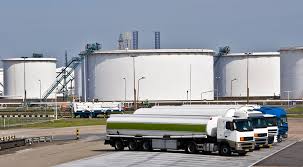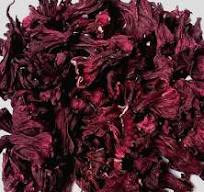Automated Gas Oil (AGO) Importation, Storage and Sales in Nigeria; The Feasibility Report.

Crude oil is the main stay of the Nigerian economy as at today. With the advent of discovery of Crude oil Nigeria has risen to be a world power among the oil producing communities in the world (OPEC) and the sixth largest producer in the world.
Crude Oil which is also known as black gold is in its raw form and is of no economic importance in this state however, after crude oil has been drilled there are various means by which it is transported to the refineries either by rail as seen in developed countries or by pipelines as it is done in Nigeria.
At the refinery, the crude undergoes the process of fractional distillation and various processes such as the addition of additives, catalytic processes and further distillation processes to produce the various fractions which are of great economic importance such as- premium motor spirit (PMS) which is used to power motor vehicles and some generating sets in parts of Africa, gasoil (A.G.O.) which is used to power generating sets and some vehicles, dual purpose kerosene (DPK) used as domestic and aviation fuel, House hold kerosene (HHK), aviation turbine kerosene (ATK) strictly fuels for airlines, the fuel oils (FO) which includes the light and high pour fuel oils used for boilers and most industries, naphthalene also known as naphtha an important commodity for lots of industrial processes, the condensates, and the gaseous hydrocarbons which have been flared in Nigeria (in simple terms burnt off /wasted) and are very important components of cooking gases.
Nigeria on its own is made up of four refineries which include the old and new situated in Port Harcourt, Warri refinery situated in Delta state and the Kaduna refinery.
Statistics revealed that as at today Nigeria consumes more than twenty million (20,000,000) liters of refined gasoil per day and the figures keeps on growing.
It is imperative to note that every refinery has specifications of the grades of refine oil they produce as this is a function of the nature of crude oil if it is either sweet or sour crude (based on their sulphur content low sulphur content is an indication that it is sweet and easier to refine with good refined products and sour crude the opposite)
As at today, the four local refineries are only able to produce a third of the total daily consumption which is allocated to some few marketers through PPMC allocations while the NNPC depends seriously on the major and independent oil marketers in conjunction with some other contracted companies to make up the remaining 70% short fall. In this regards a lot of foreign oil traders, refiners, trading companies and few individuals have made good use of this opportunity by augmenting this short fall.
Figures and statistics have revealed that for every 60,000 metric tons of refined gasoil offshore every week, 60% of this quantity is imported into the Nigerian market and the going is always good for these foreign traders as long as Nigeria is buying whilst business is bad when Nigeria is not buying. In this regards it shows how lucrative this business is in Nigeria with only very few individuals calling the shots.
It is a well – known fact that power is important fact that power in conjunction with the factors of production which includes land, labor, capital and entrepreneurship will yield no result where there is no power as power is the back bone of production.
With power raw materials can be processed into finished goods. However, with the epileptic nature of power in Nigeria, a lot of companies in Nigeria have folded up. You just name where power generation is not important: manufacturing, advertising, construction, banks, telecoms, oil rigs, eateries, cinemas, shops and malls, schools, cyber cafes, hospitals etc
It was as a result of this that a lot of industries left Nigeria to relocate to other neighboring west African countries so that they can still thrive. Importation of reined gasoil into Nigeria and Africa as a whole is a very lucrative business. After the oil has been purchased from most of these foreign traders and refiners they are shipped and stored in depots where they are subsequently traded, marketed and distributed to other parts of the country.
This report examines the financial viability of importing five thousand (5,000) tons of automated gas oil (AGO) monthly, storing and marketing same in the local market.
Table of Contents
EXECUTIVE SUMMARY 1.0 Business Overview 1.1 Description of the Business 1.2 Vision and Mission Statement 1.3 Critical Success Factor of the Business 1.4 Current Status of Business 1.5 Description of the Business Industry 1.6 Contribution to Local and National Economy 2. Marketing Plan 2.1 Description of product 2.2 The Opportunity 2.3 Pricing Strategy 2.4 Target Market 2.5 Distribution and Delivery Strategy 2.6 Promotional Strategy 2.7 Competition 3. Product Plan 3.1 Description of the Location 3.2 Product Storage 3.3 Procurement and Import Process 3.4 Machinery and Equipment 3.5 Product Cost 3.6 Stock Control Process 3.7 Pre-Operating activities and expenses 3.7.1 Operating Activities and Expenses 3.8 Project Implementation Schedule 4.0 Organizational and Management Plan 4.1 Ownership of the business 4.2 Profile of the promoters 4.3 Key Management Staff 4.3.2 Management Support Units 4.4 Details of salary schedule 5. Financial Plan 5.1 Financial Assumption 5.2 Start – up Capital Estimation 5.3 Source of Capital 5.4 Security of Loan 5.5 Loan Repayment Plan 5.6. Profit and Loss Account 5.7 Cash Flow Analysis 5.8 Viability Analysis 6.0 Business Risk and mitigation factor 6.1 Business Risks 6.2 SWOT Analysis
Project Specification:
Additional Info
Get this Report
Direct bank transfer
To order the report, Please do pay the sum of ₦100,000 into
Account Name : Foraminifera Market Research Ltd
Account Number : 274 20 569 37
Account Name : Foraminifera Market Research Ltd
Account Number : 101 76 603 95
Account Name : Foraminifera Ventures
Account Number : 011 66 066 32
Make your payment directly into our bank account. Please use your Order ID as the payment reference. Your order will not be shipped until the funds have cleared in our account.
Instructions
After payment call us on 01 -29 52 413 / 08033782777 or email us at foraminiferamarketresearch@yahoo.com with the payment details. After payment confirmation, the soft copy of the report would be sent to you within 24 hours.



